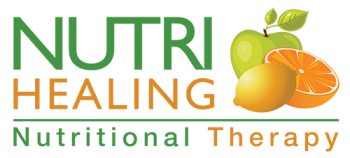Beauty is Skin deep - March 2012
How is your skin looking?
Our skin is the outer reflection of our inner health, when it is clear, hydrated and glowing this is often a sign of a good diet and skin care.
But if the skin looks: dull; pale; dry; scaly and spotty, this maybe an indication that all is not well with a person's health.
Did you know our skin is the largest organ in the body where the cells are constantly changing - shedding skin and replenishing?
The function of our skin is to cover and protect our body, regulate body temperature and provide you with a sense of touch.
Skin has 3 layers:
Outer layer Epidermis
Is Thin, tough, protective waterproof shell, keeping water in and also protecting you from losing precious water. It protects the body from bacteria, viruses, infection and other unwanted substances. This layer contains a substance called melanin, the skin pigmentation that helps filter dangerous ultraviolet (UV) rays, which contribute to wrinkles and skin cancer.
Also detects sensation through the nerve endings and can identify 5 different kinds of sensations: heat, cold, pressure, pain and contact.
Middle layer Dermis
Mostly soft tissue such as collagen, elastin and fibrillin - tissues that make your skin elastic and flexible, yet strong and structurally firm. The dermis also contains nerve endings, blood vessels, hair follicles, oil and sweat glands.
It helps to regulate body temperature, allowing the skin to retain heat when cold or release heat when hot.
Inner layer
below the dermis is the subcutaneous layer, which is made up of mostly fat; it also helps to regulate body temperature by providing insulation.
Vitamins and Minerals that play an important role in skin health
Vitamins and minerals play an important role on how your skin can look, feel, and even age.
These are the important ones:
Vitamin C
A powerful antioxidant that works on reducing the damaged caused by free radicals, a harmful by-product of sunlight, smoking and pollution. Restores the collagen, elastin and fibers that support skin structure, preventing wrinkles and premature ageing.
Foods: - Colourful Fruits, vegetables, herbs (Thyme & parsley), peppers.
Vitamin E
Also antioxidant - helps to reduce affects of sunrays,
Vitamin E is an integral part of our cellular membranes whose main role is to defend the cell against oxidation (free radicals)
Foods: Nuts, seeds, and vegetable oils are among the best sources and significant amounts are available in green leafy vegetables and fortified cereals.
Vitamin A
Is an antioxidant, necessary for the maintenance and repair of skin tissue.
Deficiencies in Vitamin A result in dry, flaky complexion.
Fruits and vegetables are loaded with vitamin A, some herbs and animal liver.
Vitamin B Complex
Healthy skin also needs the B vitamins founds in
Meat, poultry, fish, eggs, milk, whole-grain or enriched breads and cereals, vegetables (especially mushrooms, asparagus, and leafy green vegetables), peanut butter
CoQ 10
Is a potent antioxidant, which supports Vitamin E and boosts the function of our cells and acting as a general stimulant.
Foods containing CoQ10 are - fish, organ meats - Liver, heart, kidneys and whole grains.
Minerals
Glucosamine, manganese, copper and zinc that help rebuild the matrix
Essential Fatty Acids
Anti-inflammatory and essential for maintaining integrity
These are "good fats" that your body needs for healthy skin; they are not made by the body, so therefore must be replenished through food. What do they do?
- Regulating cell function,
- Maintaining the integrity of the cellular walls,
Allowing smooth transference of waste and water.
A skin cell's ability to hold water decreases with age. A healthy skin cell has a healthy membrane, which keeps good things in, like water and nutrients, and allows waste products to pass out. It is a fatty acid's job to keep that cell healthy and its membrane functioning.
Some other important nutrients, which help, prevent anti-ageing
- Blackberries, blueberries, elderberries, bilberry
Herbs - Lady's mantle, ginkgo, turmeric
- Red wine, Green tea
Action plan to improve the health of your skin
- Water - Drink plenty of fluids as every living cell and body process needs Water, it eliminate toxins from our body and regulate body temperature
- Get plenty of sleep! - While we sleep growth hormones are released, these increase the amount of nutrients taken up by the cells encouraging growth and repair to the tissues and stimulates the immune system. A chronic lack of sleep tends to show up in the skin.
- Taking more exercise or improving your sex life may help to improve your sleep.
- Always protect your skin from the sun - Sunlight has positive and negative effects on our skin
- Excessive exposure causes 'photic ageing' this is where the skin becomes thin and wrinkled resulting in premature aging, so protecting your skin with a good sunscreen will help filter out these harmful rays and allow enough sunlight to be absorbed to produce Vitamin D which is important in reducing the risks of osteoporosis, various cancers and possibly rheumatoid arthritis.
- Cleansing your skin - it's a good idea to get into the habit of using a cleanser and toner - especially if you wear make-up everyday.
- Give up smoking - give up the cigarettes which can cause premature aging to the skin due to lack of oxygen to the cells and puckering lines around the mouth.
- Reduce alcohol - cut down on excessive alcohol consumption. Drinking robs the body of vital nutrients and causes facial blood vessels to dilate, leading to red 'spider veins' on the skin.
- Avoid yo-yo diet - Avoid getting into a habit of yo-yo dieting. This is another contributing factor to premature wrinkling - over-stretched skin creates baggy skin.
